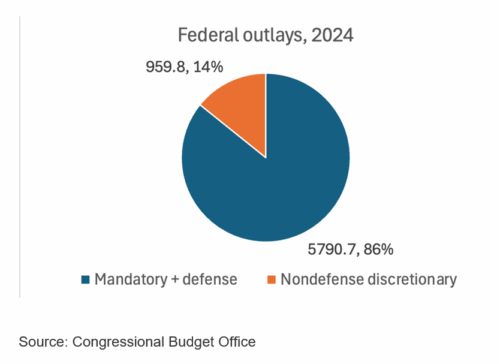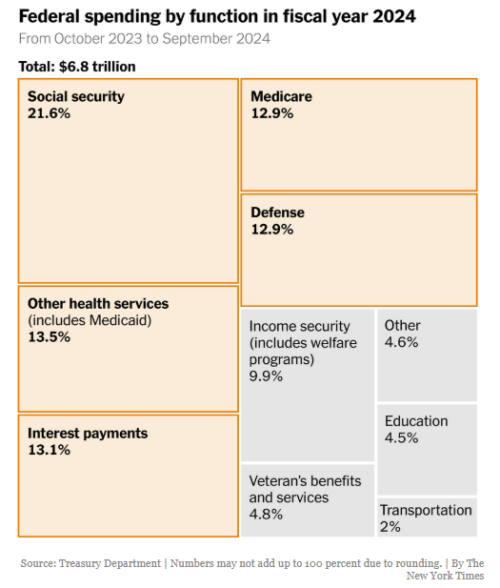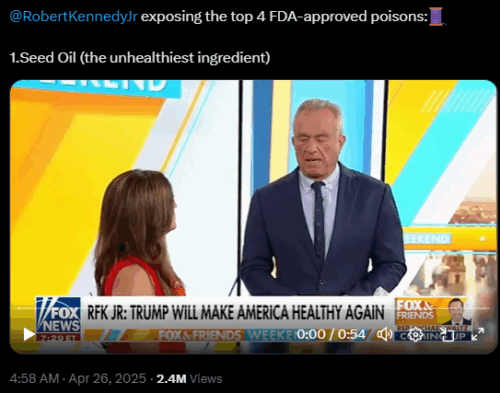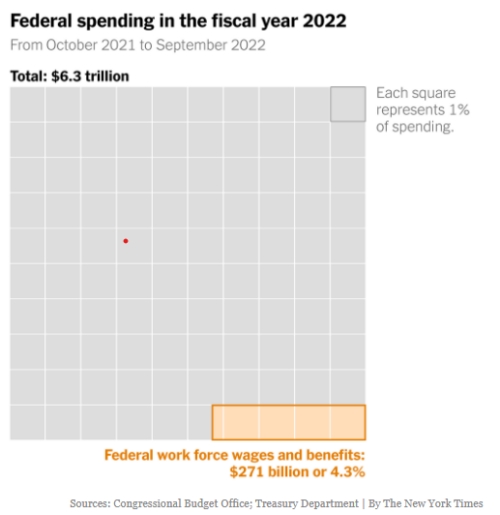A Canadian reader, Michel Lucas, sent this one (merci).
The report: Benoît Lamarche, Arne Astrup, Robert H Eckel, Emma Feeney, Ian Givens, Ronald M Krauss, Philippe Legrand, Renata Micha, Marie-Caroline Michalski, Sabita Soedamah-Muthu, Qi Sun, Frans J Kok. Regular-fat and low-fat dairy foods and cardiovascular diseases: perspectives for future dietary recommendations. The American Journal of Clinical Nutrition, Volume 121, Issue 5, 2025, Pages 956-964, ISSN 0002-9165, https://doi.org/10.1016/j.ajcnut.2025.03.009.
The workshop: Saturated Fat in Dairy and Cardiovascular Diseases, Amsterdam, 15–16 April, 2024.
Findings: “The most recent evidence indicates that overall, consumption of milk, yogurt and cheese, irrespective of fat content, is neutrally associated with CVD risk. There is also no evidence yet from randomized controlled trials that consumption of regular-fat milk, yogurt, and cheese has different effects on a broad array of cardiometabolic risk factors when compared with consumption of low-fat milk, yogurt, and cheese.”
Conclusion: “Thus, the body of evidence does not support differentiation between regular-fat and low-fat dairy foods in dietary guidelines for both adults and children.”
Implication: “Strategies focusing primarily on reduction of energy-dense, nutrient-poor foods, the main source of SFAs in Western diets, rather than on the fat content of dairy foods, are more likely to benefit the population’s cardiovascular health.”
Funding: The workshop “was supported by an unrestricted grant from the Dutch Dairy Association.”
Comment: Foods from animal sources—meat and dairy—are by far the main sources of saturated fatty acids in US diets (all food fats, no exceptions, are mixtures of saturated, unsaturated, and polyunsaturated fatty acids; it’s just the proportions that differ).
Cows eat grass; grass has fatty acids but they are mostly unsaturated; bacteria in the cows’ rumens saturate the fatty acids.
Pretty much everyone agrees that when saturated fatty acids are substituted for unsaturated or polyunsaturated fatty acids, they raise blood cholesterol and the risk for heart disease. The disagreements are over by how much and whether clinically meaningful.
The dairy industry would like everyone to believe that the saturated fatty acids in dairy foods are benign. Hence this workshop.
Conflict of interest: The disclosure statement begins with “The Dutch Dairy Association had no role in the discussions held at the high-level closed workshop and did not participate or provide comments during the development and writing of this manuscript.” It didn’t have to.
Here’s the rest of the statement (I’ve emphasized dairy connections):
AA is a member of the Journal’s Editorial Board and is also an Associate Editor on The American Journal of Clinical Nutrition and played no role in the journal’s evaluation of the manuscript, reports a relationship with Rééducation Nutritionnelle et Psycho-Comportementale Scientific Committee and American Journal of Clinical Nutrition that includes board membership; and a relationship with Ferrero that includes funding grants. QS reports travel provided by Dutch Dairy Association. AA, RHE, IG, EF, RMK, PL, RM, M-CM, SS-M, and FJK reports financial support and travel provided by Dutch Dairy Association. BL reports writing assistance provided by Chill Pill Media Ltd and relationship with Health Canada that includes funding grants. EF reports a relationship with Food for Heath Ireland and Teagasc Food Research Ireland that includes funding grants; relationship with Irish section of the Nutrition Society and British Journal of Nutrition that includes board membership; relationship with National Dairy Council Ireland that includes consulting or advisory and travel reimbursement. IG reports a relationship with Global Dairy Platform, Dairy Australia, Barham Benevolent Foundation, UK Research and Innovation, Medical Research Council that includes funding grants; relationship with European Milk Federation, French National Interprofessional Centre for Dairy Economics, and Dairy Council Northern Ireland that includes speaking and lecture fees and travel reimbursement; relationship with ELSEVIER INC that includes consulting or advisory. RMK reports a relationship with Dairy Management Inc that includes funding grants. RM reports a relationship with National Institutes of Health and Gates Foundation that includes funding grants. M-CM reports a relationship with French Dairy Interbranch Organization, Sodiaal-Candia and Danone that includes funding grants; relationship with Sodiaal-Candia that includes consulting or advisory; relationship with International Milk Genomics Consortium that includes speaking and lecture fees and travel reimbursement; relationship with Danone Nutricia Research and French Dairy Interbranch Organization that includes travel reimbursement. SS-M reports a relationship with Dutch Dairy Association and Danish Dairy Research Foundation that includes funding grants.




 What this tells us is that if the entire government workforce were fired, it would only reduce federal expenditures by 4.3 percent.
What this tells us is that if the entire government workforce were fired, it would only reduce federal expenditures by 4.3 percent.
